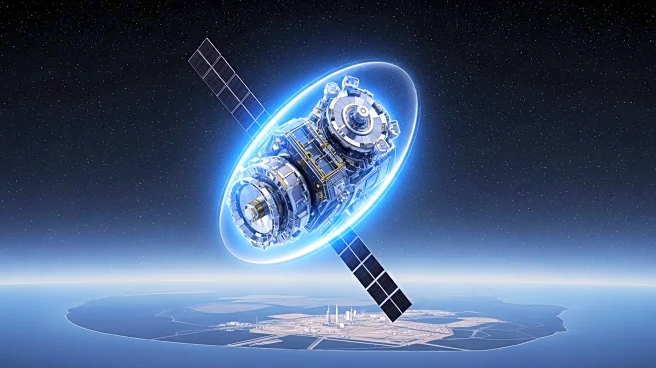What is the story about?
What's Happening?
The U.S. Space Force's Space Systems Command has awarded Blue Origin a $78.2 million contract to expand satellite processing infrastructure at Cape Canaveral Space Force Station. This three-year agreement, announced on October 7, was secured through a 'Commercial Solutions Opening' competition, a procurement method designed to attract private-sector innovation and share project costs with commercial partners. The expansion is necessary to address the increasing demand for satellite launches, as the current facilities have become bottlenecks due to the high volume of launches, particularly with the rise of SpaceX rideshare missions. These missions involve multiple small satellites sharing a single rocket, each requiring specific handling and testing, which strains the existing cleanroom capacities.
Why It's Important?
This contract highlights the growing collaboration between the U.S. government and private space companies to meet national security and commercial launch needs. By expanding satellite processing capabilities, Blue Origin and the Space Force aim to alleviate current bottlenecks at Cape Canaveral, the busiest spaceport in the nation. This development is crucial for maintaining the pace of satellite launches, which are vital for various applications, including communications, navigation, and Earth observation. The partnership also underscores the strategic importance of enhancing infrastructure to support the burgeoning space industry, which is expected to continue its rapid growth.
What's Next?
As Blue Origin proceeds with the construction of the new payload processing facility, the company is poised to increase its operational efficiency and support a higher launch cadence. This expansion will not only benefit Blue Origin but also other launch vehicle providers operating on Florida's Space Coast. The enhanced infrastructure is expected to facilitate more frequent and diverse satellite launches, potentially attracting more commercial and government clients. The success of this project could set a precedent for future public-private partnerships in the space sector, further integrating private innovation with national space objectives.















